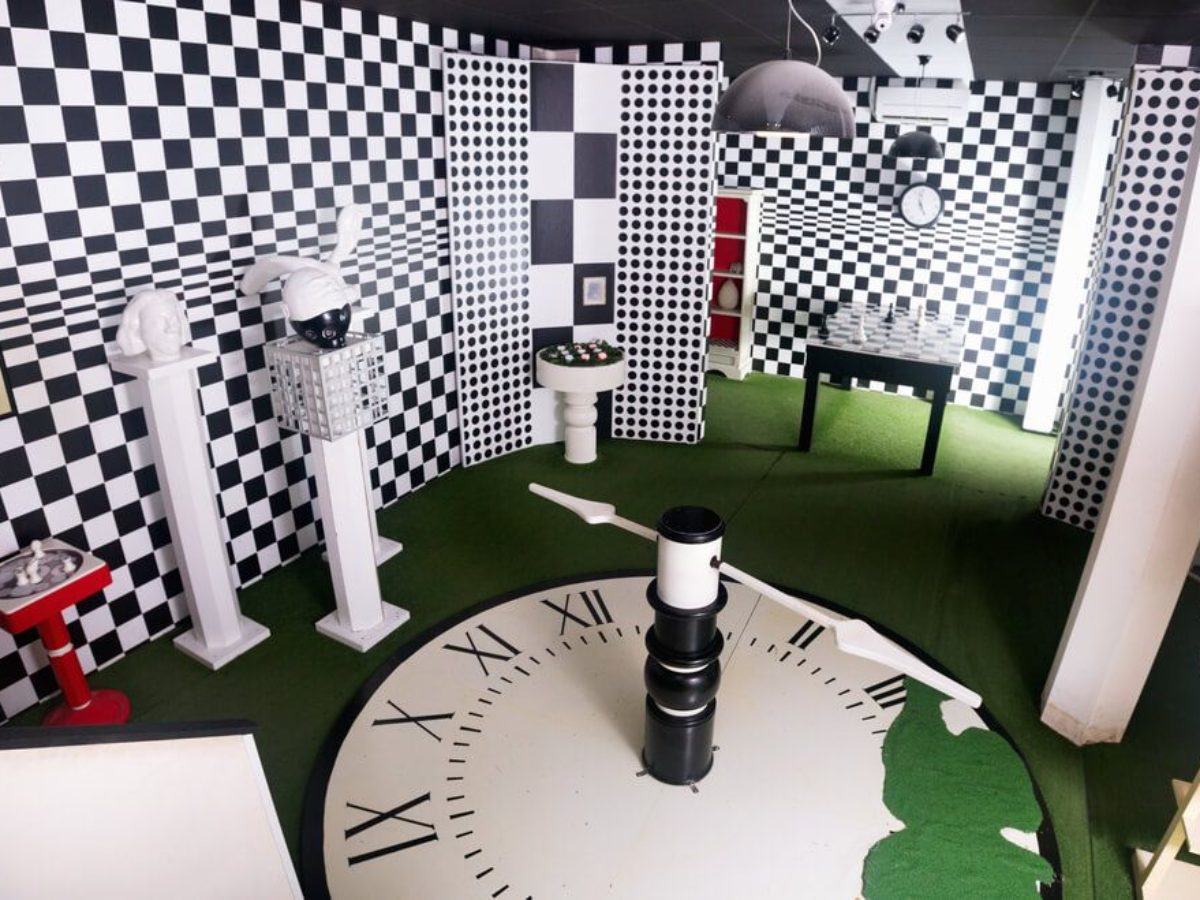Best Escape Room-- Examination Your Abilities and Address the Enigma
Best Escape Room-- Examination Your Abilities and Address the Enigma
Blog Article
Group Techniques: How to Collaborate Successfully in an Escape Space
Teams need to actively pay attention to each member's insights, appoint roles that align with private staminas, and maintain routine check-ins to guarantee focus and avoid redundancy. By fostering an atmosphere that values communication and adaptability, groups can considerably heighten their effectiveness and success rates.
Establish Clear Interaction

To facilitate clear communication, it is important to mark a main point of get in touch with for information dissemination. Quick, focused updates from each group participant can maintain the group informed without overwhelming them with info.

Assign Duties Purposefully
While clear communication establishes the structure for effective team effort, assigning duties tactically makes certain that each group participant's staminas are used successfully. In a getaway space scenario, the time-sensitive and complicated nature of obstacles demands a well-organized strategy to task delegation. By recognizing and leveraging private competencies, teams can maximize their analytical capacities and improve overall performance.
A person with an eager eye for detail might stand out in finding hidden items, while a rational thinker can be better matched to resolving problems. This role usually calls for solid organizational and social abilities.
Second, make certain that duties are versatile and versatile. As new obstacles arise, the team needs to have the ability to pivot, reapportioning tasks as needed. This adaptability aids keep momentum and avoids bottlenecks that can take place because of stiff role assignments.
Inevitably, a calculated approach to role project not just takes full advantage of the staminas of each staff member but additionally promotes a cohesive atmosphere, driving the group towards a successful retreat.
Utilize Diverse Skills
Identifying and harnessing the varied skills within your team can significantly raise your efficiency in an escape room. Each staff member brings distinct staminas to the table, and effectively leveraging these capacities can speed up analytical and enhance total performance. For example, a group participant with strong analytical skills could excel at figuring out complex codes or patterns, while one more with keen observational capacities may swiftly identify covert clues that others could forget.
Efficient interaction is key to making use of these diverse abilities. Motivate group participants to voice their understandings and concepts quickly, ensuring that all prospective options are considered. This inclusive approach cultivates a vibrant atmosphere where creative thinking and important thinking can prosper. Additionally, assigning jobs that align with each participant's toughness can prevent traffic jams and ensure that development is constant.
In addition, diversity in abilities frequently equates to variety in believing styles, which is invaluable in an escape space setup. While some obstacles may require logical reasoning and accuracy, others could benefit from imaginative and lateral thinking. By acknowledging and leveraging this variety, teams can address a broader variety of challenges more efficiently, consequently boosting their chances of a successful retreat.
Manage Time Properly

First, assign first mins for a fast survey of the space. Identify noticeable problems and split tasks based upon employee' toughness, making certain that nobody is still. Establish internal time checkpoints to examine progression regularly; for example, objective to have half the challenges solved by the mid-point of the game. This practice can assist maintain the group focused and prevent time from escaping unnoticed.
Additionally, prevent tunnel vision. If a challenge is taking as well long, rotate employee or go on to one more challenge, returning later on with fresh point of views. Interaction is vital-- keep everybody updated on addressed problems and continuing to be jobs to prevent repetitive efforts.
Last but not least, utilize any type of tips or ideas sparingly however tactically - best escape room. Knowing when to request for help can conserve useful time. By sticking to these time management concepts, teams can see here considerably boost their possibilities of a successful and satisfying retreat space experience
Debrief and Show
Representation is an essential aspect of group development and renovation in the context of getaway areas. As soon as the obstacle is completed, whether efficiently or otherwise, it is critical for the group to participate in a structured debriefing session. This procedure permits staff member to assess their efficiency, identify strengths, and pinpoint areas for renovation.
Start the debrief by discussing what went well. Highlight particular instances of effective communication, analytical, and cooperation. Acknowledging these positive behaviors enhances them and urges their rep in future challenges.
Discuss minutes of confusion, miscommunication, or inefficient look what i found approaches. Motivate an open and constructive dialogue where team participants can share their viewpoints without worry of criticism.
Verdict
In conclusion, effective partnership in a getaway space is asserted upon clear communication, strategic role projects, the reliable utilization of varied abilities, and skilled time administration. By creating a cohesive and adaptive team environment, the probability of efficiently addressing challenges and accomplishing the purpose of leaving the area important site is significantly improved.
Report this page